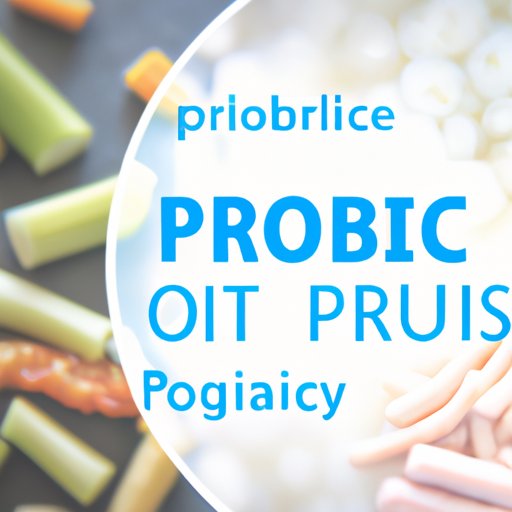Introduction
Gut health is an important factor in overall health and well-being. It refers to the balance of microorganisms that live in the gastrointestinal tract, which is responsible for breaking down food, absorbing nutrients, and eliminating waste. Gut health has been linked to a wide range of physical and mental health issues, including digestive problems, immune system function, and mood disorders.

Role of Probiotics and Prebiotics in Maintaining Gut Health
The use of probiotics and prebiotics has become increasingly popular in recent years as a way to maintain gut health. Probiotics are living microorganisms, such as bacteria and yeast, that are beneficial for health. Prebiotics are non-living substances, such as dietary fibers, that act as food for probiotics and help them to thrive. Incorporating probiotics and prebiotics into the diet can help to restore the natural balance of microorganisms in the gut, improving digestion and nutrient absorption.

Benefits of a Healthy Gut Microbiome
A healthy gut microbiome has many benefits, including improved digestion, enhanced nutrient absorption, and reduced risk of diseases. According to a study published in the journal Nature, a healthy gut microbiome is associated with improved metabolic health, lower blood pressure, and better mental health.
Impact of Diet on Gut Health
Diet plays an important role in maintaining gut health. Eating whole foods such as fruits, vegetables, whole grains, legumes, and lean proteins can help to promote a healthy gut microbiome. Avoiding processed foods and sugary drinks is also important, as these can disrupt the balance of microorganisms in the gut. Reducing stress can also help to improve gut health.
Connection between Mental Health and Gut Health
Recent research has suggested that there is a strong connection between mental health and gut health. Stress and anxiety can have a negative impact on the gut microbiome, while some studies have found a link between gut bacteria and mood. Research has also suggested that taking probiotics may help to reduce symptoms of depression.

Evaluating Lifestyle Factors that Affect Gut Health
In addition to diet, lifestyle factors such as exercise, adequate sleep, and minimizing alcohol consumption can also have an impact on gut health. Exercise can help to reduce stress levels and improve digestion, while getting enough sleep can help to maintain a healthy balance of microorganisms in the gut. Minimizing alcohol consumption can also help to reduce inflammation and protect the gut from damage.
Conclusion
Gut health is an important factor in overall health and well-being. Probiotics and prebiotics can help to maintain a healthy balance of microorganisms in the gut, while eating whole foods and reducing stress can also help to promote gut health. Additionally, evaluating lifestyle factors such as exercise, sleep, and alcohol consumption can help to ensure that the gut is functioning optimally.
(Note: Is this article not meeting your expectations? Do you have knowledge or insights to share? Unlock new opportunities and expand your reach by joining our authors team. Click Registration to join us and share your expertise with our readers.)
